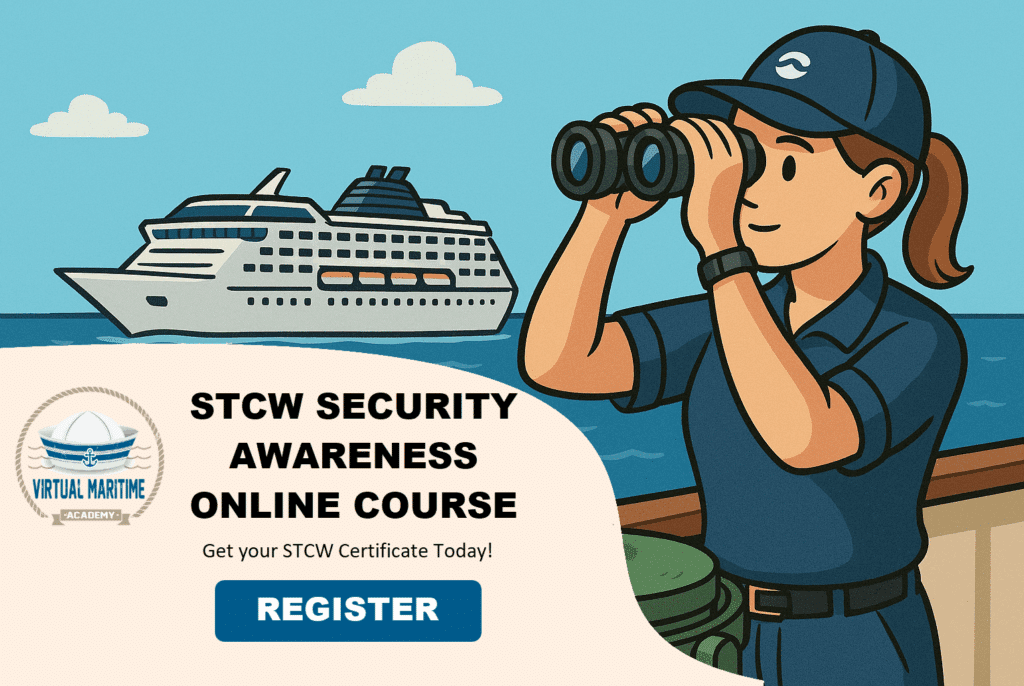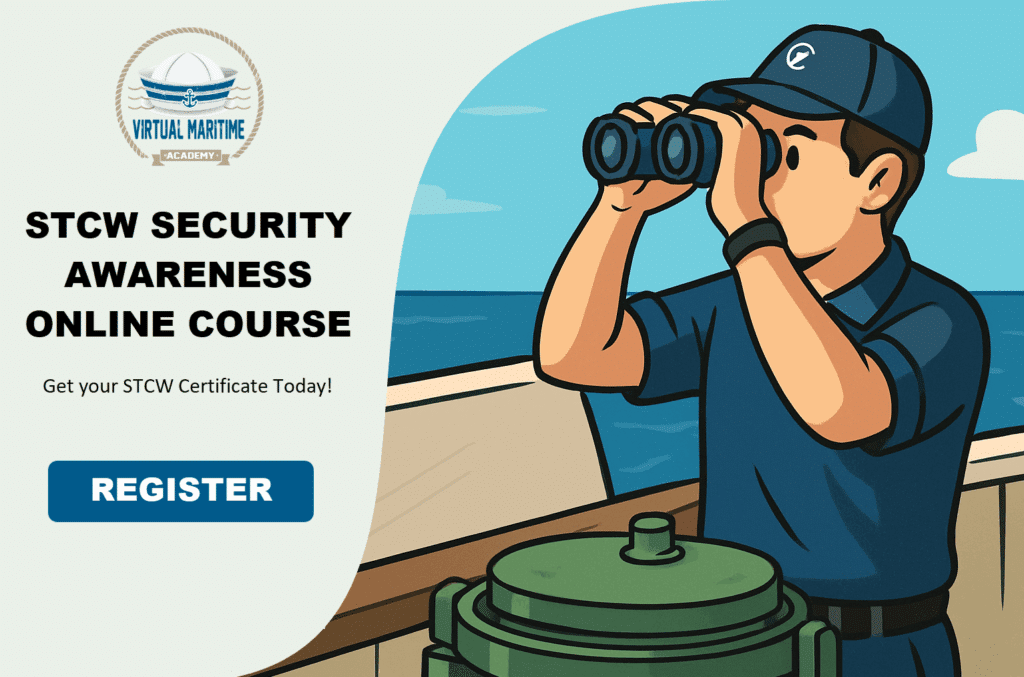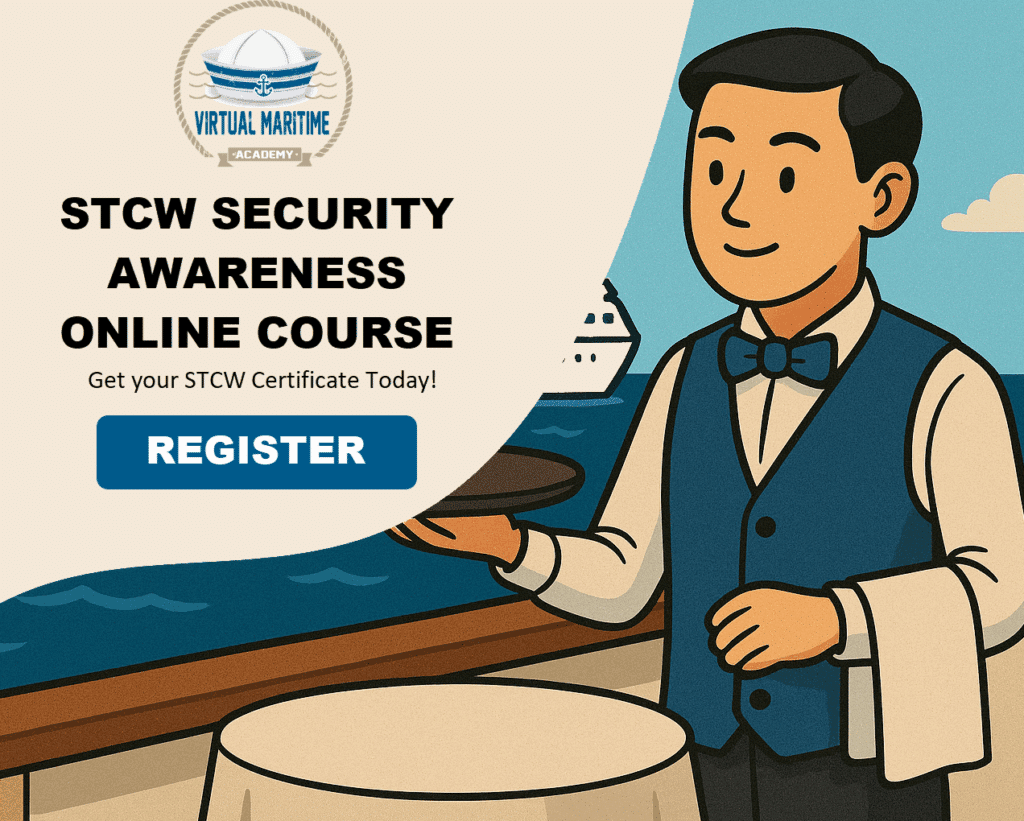In today’s increasingly complex maritime environment, ensuring the safety and security of vessels, ports, and personnel is more critical than ever. The role of a Company Security Officer (CSO) is pivotal in maintaining comprehensive maritime security and compliance with international regulations. With the right training, a CSO can lead their organization in making informed decisions, developing efficient security protocols, and responding proactively to potential threats. This article will explore the essential components of Company Security Officer (CSO) training and how it empowers maritime professionals to lead maritime security with confidence.
Learn more about our Courses here!
Key Takeaways
- Company Security Officers are essential for maintaining maritime safety and security.
- Effective CSOs must possess a range of key skills, including risk assessment and crisis management.
- A comprehensive training program is vital for preparing CSOs to handle diverse security challenges.
- Implementing best practices helps ensure that established security standards are consistently maintained.
- Continuous evaluation and improvement of training programs drive better security outcomes in maritime operations.
Understanding the Role of a Company Security Officer
In today’s complex and increasingly globalized world, the role of a Company Security Officer (CSO) has never been more critical. A CSO is responsible for overseeing the security protocols and measures within a maritime organization, ensuring the safety of personnel, assets, and operations. To effectively fulfill these responsibilities, undergoing comprehensive Company Security Officer (CSO) training is essential. This specialized training provides CSOs with the knowledge and skills required to identify potential security threats, develop effective security plans, and implement industry best practices. As maritime security continues to evolve, CSO training empowers officers to lead with confidence, addressing emerging challenges and ensuring compliance with international regulations. Investing in such training not only enhances the security framework of a maritime company but also boosts the overall safety and performance of its operations.
Key Skills and Competencies for Effective Maritime Security
In today’s complex maritime landscape, the role of a Company Security Officer (CSO) has never been more pivotal. CSO Training equips professionals with the essential skills and competencies needed to navigate the challenges of maritime security effectively. Key skills include threat assessment, which enables CSOs to identify vulnerabilities within their operations, as well as risk management, which involves developing strategies to mitigate potential threats. Furthermore, effective communication and leadership skills are crucial, as CSOs must collaborate with various stakeholders, including crew members and regulatory authorities, to ensure compliance with international maritime security standards. The training also emphasizes the importance of crisis management, ensuring that CSOs can lead their teams with confidence during unexpected incidents. By harnessing these skills through comprehensive training programs, maritime security professionals can enhance their operational effectiveness and safeguard their vessels against diverse security threats.
Learn more about our Courses here!
Developing a Comprehensive Training Program
Developing a Comprehensive Training Program for Company Security Officers (CSOs) is crucial for organizations operating in maritime environments. With the increasing threat landscape, CSO Training: Lead Maritime Security with Confidence becomes an essential focus for companies striving to safeguard their assets and personnel at sea. A well-structured training program should encompass key areas such as risk assessment, emergency response, and regulatory compliance, ensuring CSOs are equipped with the necessary skills and knowledge to manage security threats effectively. By incorporating hands-on simulations, workshops, and access to online resources, organizations can foster an engaging learning environment that prepares CSOs to lead with authority and assurance. Ultimately, investing in a robust training program not only enhances the security posture of the company but also builds a culture of safety and vigilance among all employees.
Best Practices for Implementing and Maintaining Security Standards
In today’s ever-evolving maritime industry, the role of a Company Security Officer (CSO) is critical in ensuring the safety and security of vessels and personnel. Implementing and maintaining robust security standards is essential for any organization looking to protect its assets from potential threats. First and foremost, investing in comprehensive Company Security Officer (CSO) training is a best practice that equips individuals with the knowledge and skills needed to lead maritime security operations with confidence. This training should cover various aspects, including risk assessment, emergency response plans, and compliance with international security regulations such as the ISPS Code. Additionally, fostering a culture of security within the organization is vital; regular drills and updates on security protocols can enhance awareness and preparedness among crew members. Furthermore, the CSO should establish clear communication channels to ensure timely reporting of any security incidents, allowing for swift action and mitigation. By adapting these best practices and emphasizing the importance of ongoing training and effective communication, organizations can maintain high security standards and safeguard their maritime operations against potential threats.
About Virtual Maritime Academy
Virtual Maritime Academy is a leading provider of online maritime education and training, offering a wide range of courses designed to meet the needs of the global maritime industry. With a commitment to quality and innovation, Virtual Maritime Academy is dedicated to preparing seafarers and maritime professionals for success in their careers. Now a DNV Certified Maritime Training Provider, the academy upholds the highest standards of excellence in training and education.












